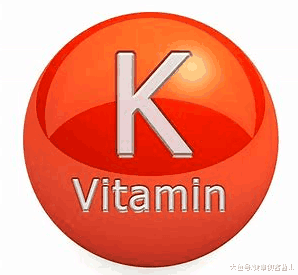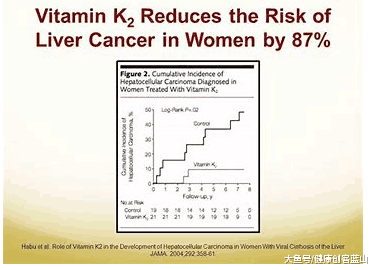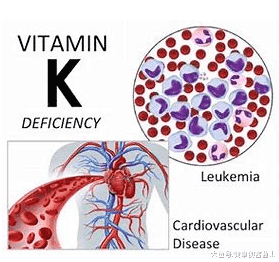维生素K具有显著的抗癌特性
The Remarkable Anticancer Properties of Vitamin K
图示:新发现的维生素K的三大作用:保护心血管、抗癌、预防软组织钙化和骨质疏松
维生素K具有显著的抗癌特性。
在人类生存的大部分时间里,科学家都沉浸在致命的无知之中,不知道人类需要补充足够的维生素D。
我们担心今天在维生素K方面存在同样的知识缺失。
在这篇文章中,你将会发现关于维生素K及其迅速出现的抗癌特性的惊人发现。您将了解最新发现的维生素K发挥其有效作用的机制。你也会明白为什么科学家甚至一些主流医生对维生素K在多个阶段对抗癌症中的作用越来越感兴趣。
图示:维生素K2降低妇女肝癌风险高达87%
维生素K:癌症预防的新前沿
维生素K2 (menaquinone)已经被证明可以安全地抑制人类肝癌的生长和侵袭,肝癌是一种常见的致命形式。它对这些肿瘤产生多重影响,通过某种方式改变生长因子和它们的受体分子,使它们更不能够刺激肿瘤的生长和进展。它冻结细胞周期,阻止进一步复制。它通过几种不同的机制通过凋亡触发程序性细胞死。
维生素K:癌症预防的新前沿
实验室研究也证明了维生素K在许多其他癌症类型中的巨大潜力。维生素K2诱导某些人类白血病细胞分化,或转化为正常白细胞。在某些脑肿瘤细胞、胃癌和结直肠癌细胞中,维生素K使生殖细胞周期停止并诱导细胞凋亡。维生素K还能触发癌细胞通常抑制的DNA降解蛋白;从而有效地防止肿瘤细胞自我修复。
肺癌是出了名的具有侵略性,而且很难治疗。在几种不同类型的肺癌中,包括小细胞、鳞状细胞和腺癌,维生素K通过激活“自杀蛋白”诱导细胞凋亡。13项新的化疗药物的临床试验令人失望,但当维生素K被添加到一种新药——甲磺酸伊马替尼时,它迅速抑制了所有肺癌细胞系的生长。维生素K在膀胱癌和肝癌中也有类似的协同作用。
维生素K活性的一个独特机制是所谓的“癌死亡”,这是一种应激激活的缺血性细胞死亡,肿瘤细胞对这种死亡特别敏感。由于肿瘤细胞生长速度快,它们会消耗大量的葡萄糖。而且,由于它们的血液供应很快就会耗尽,这种高代谢意味着它们会迅速消耗氧气,这使得它们比周围的健康组织更容易受到氧化压力的影响。维生素K可以通过刺激氧化应激来破坏肿瘤细胞,对健康组织没有毒性。
最近在胆管癌和白血病中证实的另一种独特机制是自噬,即癌细胞本质上是通过内部释放自己的消化酶来“吃”自己。另一种独特的机制是,维生素C和维生素K的结合会导致自体分裂导致癌细胞死亡,即细胞分裂,释放出它们的内容。
图示:维生素K2可以逆转软组织如血管钙化
最后,最近发现了三种维生素K的协同抗癌机制。维生素K3抑制DNA生成酶。维生素K2和K3阻断肿瘤组织快速生长所必需的新血管形成。此外维生素K3破坏由微管组成的细胞内关键的通讯网络,阻止细胞以协调的方式增殖。
https://s.click.taobao.com/Z5iZKNw
The Remarkable Anticancer Properties of Vitamin K
November 2010
By Felix DiFara
The Remarkable Anticancer Properties of Vitamin K
For most of mankind’s existence, scientists wallowed in lethal ignorance regarding the critical need for humans to supplement with enough vitamin D.
We fear the same knowledge deficit exists today regarding vitamin K.
In this article, you will discover remarkable findings on vitamin K and its rapidly emerging anti-cancer profile. You’ll learn of newly identified mechanisms by which vitamin K exerts its potent effects. You will also understand why interest is growing among scientists and even some mainstream physicians about vitamin K’s role in combating cancer at multiple stages.
Vitamin K: A New Frontier in Cancer Prevention
Vitamin K2 (menaquinone) has been shown to safely suppress growth and invasion of human hepatocellular carcinoma, a common and deadly form of liver cancer.1,2 It exerts multiple effects on these tumors, modifying growth factors and their receptor molecules in a way that makes them less able to stimulate tumor growth and progression.2-4 It freezes the cell cycle, blocking further replication.5 And it triggers programmed cell death by apoptosis through several distinctive mechanisms.6
Vitamin K: A New Frontier in Cancer Prevention
Lab studies demonstrate tremendous potential for vitamin K in many other cancer types as well.7 Vitamin K2 induces certain kinds of human leukemia cells to differentiate, or turn into normal white blood cells.8 In cells from certain brain tumors, in stomach cancer, and in colorectal cancer lines, vitamin K halts the reproductive cell cycle and induces apoptosis.9-11 Vitamin K also triggers a DNA-degrading protein that cancer cells normally suppress; thereby preventing tumor cells from repairing themselves effectively.12
Lung cancers are notoriously aggressive and difficult to treat. In several different types of lung cancer, including small cell, squamous cell, and adenocarcinomas, vitamin K induces apoptosis through activation of a “suicide protein.”13 Clinical trials of newer chemotherapy agents have been disappointing, but when vitamin K was added to one newer drug, imatinib mesylate, it rapidly suppressed growth in all lung cancer cell lines tested.14 Vitamin K exhibits similarly synergistic effects in bladder and liver cancers as well.15,16
A unique mechanism of vitamin K’s activity is so-called “oncosis,” a form of stress-activated ischemic cell death to which tumor cells are particularly susceptible.17 Because of their high growth rate, tumor cells consume vast amounts of glucose. And because they can rapidly outgrow their blood supplies, that high metabolism means they use up oxygen rapidly, making them especially vulnerable to oxidant stress—much more so than the healthy tissues around them. Vitamin K targets tumor cells for destruction by stimulating oxidative stress, without toxicity to healthy tissues.18
Another unique mechanism, demonstrated recently in bile duct cancers and leukemia, is autophagy, in which cancer cells essentially “eat” themselves by releasing their own digestive enzymes internally.19,20 By still another unique mechanism, vitamins C and K in combination contribute to cancer cell death by autoschizis, whereby cells simply split open, spilling their contents.21
Finally, three of vitamin K’s synergistic anticancer mechanisms have recently been identified. Vitamin K3 inhibits DNA-building enzymes.22 Vitamins K2 and K3 block new blood vessel formation essential to support the rapid growth of tumor tissue.22-24 And vitamin K3 disrupts crucial intracellular communications networks composed of microtubules, preventing the cells from proliferating in a coordinated fashion.25



.png)
.png)